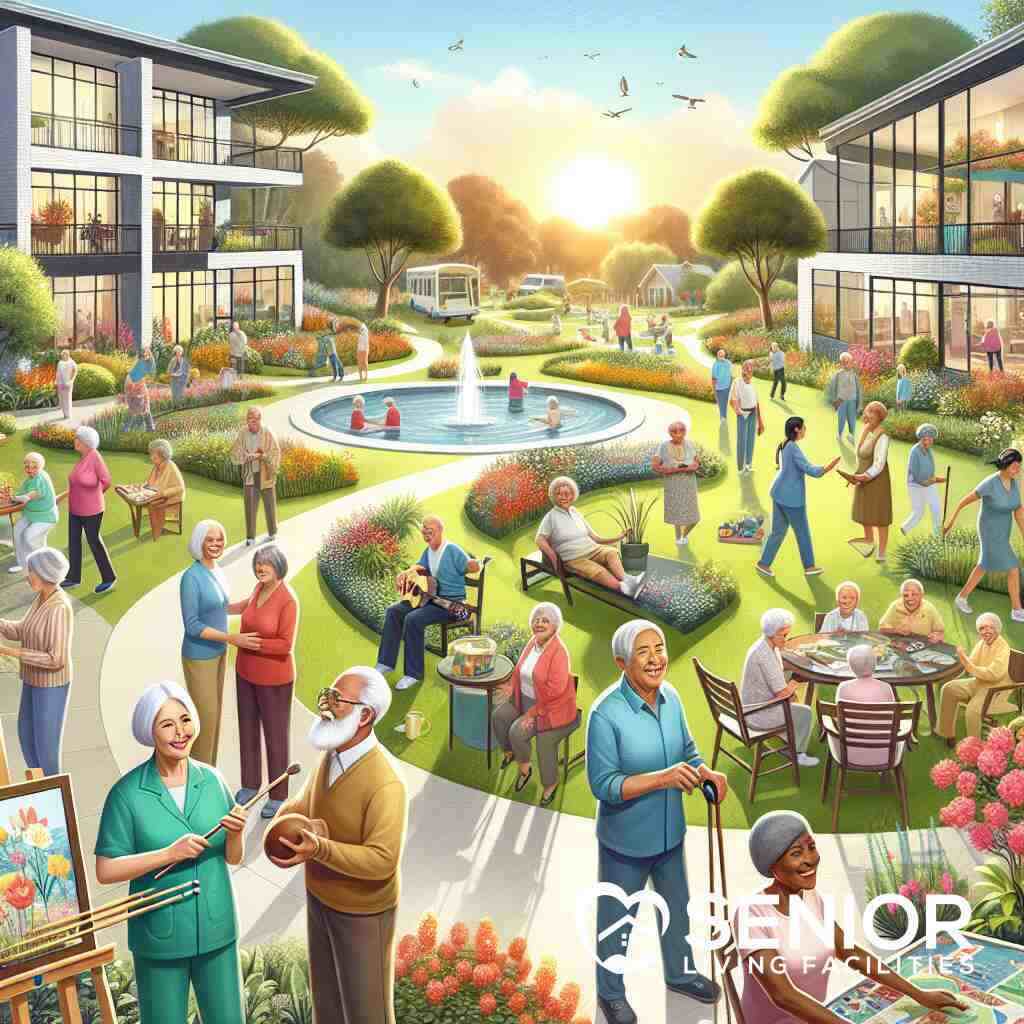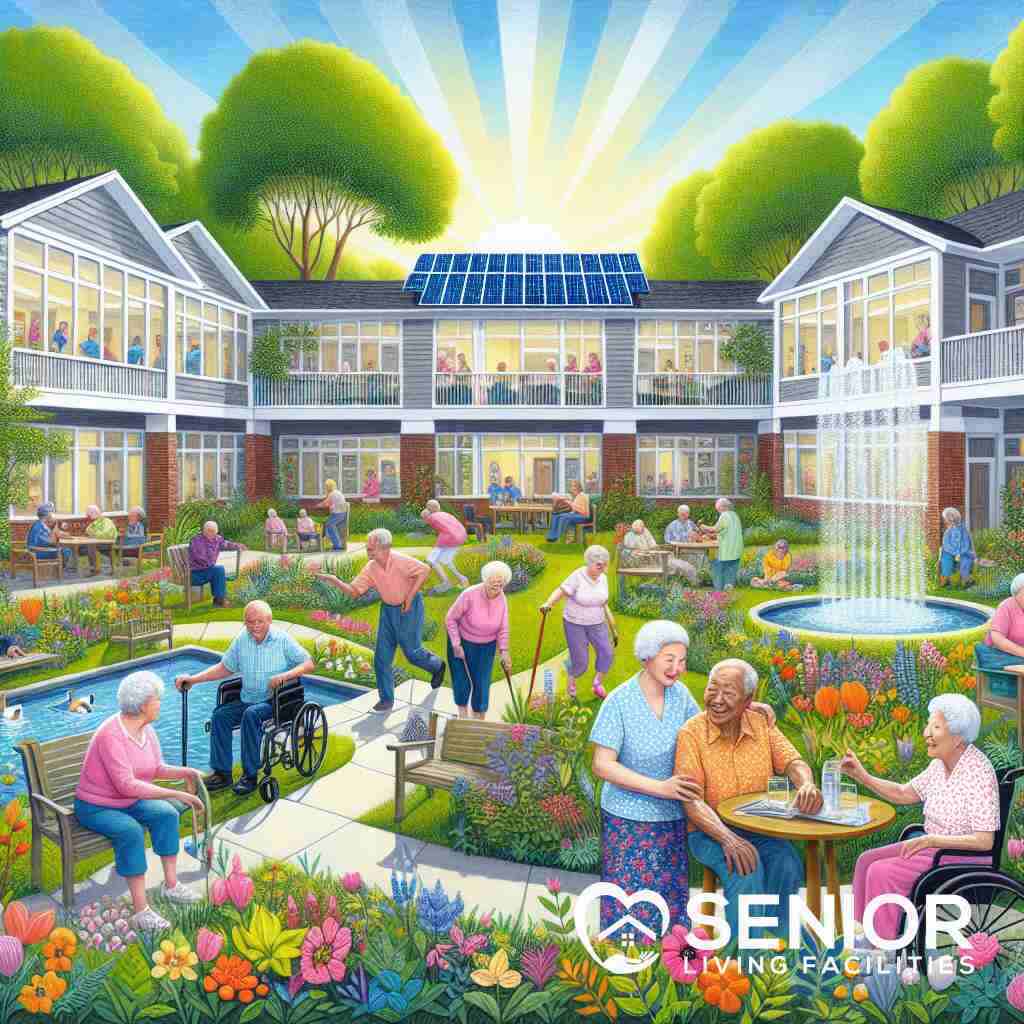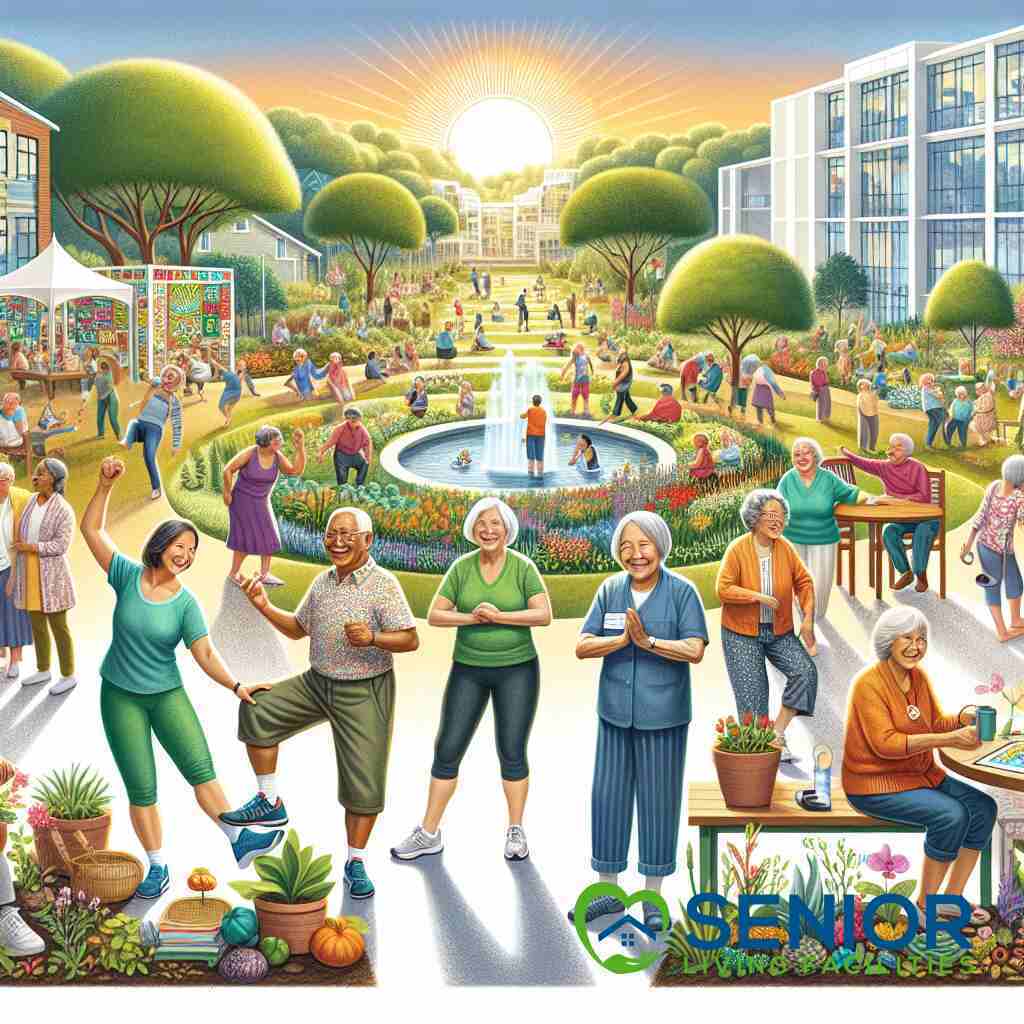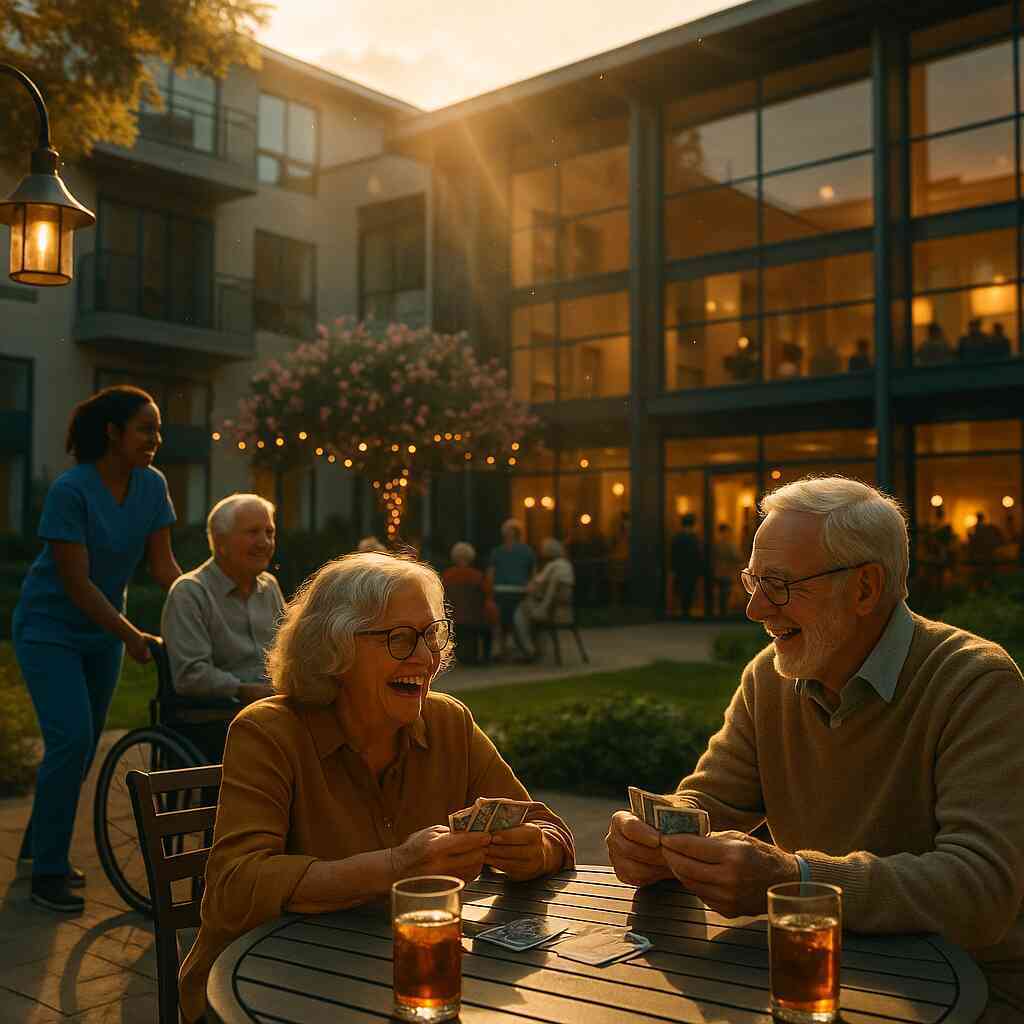
What Are the Top 5 Challenges of Senior Living Facilities in Massachusetts?
September 27, 2025
Introduction: Navigating the Complex Landscape of Senior Living in Massachusetts
Understanding the Diverse Needs of Seniors in MA
Massachusetts stands as a state rich in history and culture, but it also presents unique challenges for its senior population. As individuals age, their needs evolve, requiring a nuanced understanding from senior living facilities. The elderly in Massachusetts have diverse demands due to varying health conditions, lifestyle preferences, and social needs. Seniors in this region often seek communities that offer not only medical care but also a vibrant social environment. Therefore, senior living facilities must address these multifaceted needs with tailored services.
Setting the Stage for Senior Care Excellence
Achieving excellence in senior care within Massachusetts involves a comprehensive approach anchored on quality and personalized service. Facilities are tasked with not just meeting state compliance but exceeding expectations in creating an environment conducive to aging gracefully. Engaging seniors in meaningful activities and ensuring their emotional and physical well-being must be prioritized. By focusing on continuous improvement and innovation, these communities can provide an excellent standard of care, thereby enriching the lives of seniors.
Identifying Core Challenges and How They Impact the Elderly Community
The elderly community in Massachusetts faces several pressing challenges within senior living environments. From senior living challenges in Massachusetts due to regulatory pressures to financial constraints that impact service delivery, these difficulties significantly affect residents’ quality of life. Furthermore, staffing shortages pose a threat to consistent care and attention, leading to potential declines in resident satisfaction. It’s crucial to unravel these core issues to ensure a supportive, fulfilling living experience for seniors in the state.
1) Staffing Crunch Unraveling the Staffing Conundrum in Senior Facilities
Recruitment Hurdles in a Competitive Job Market
In the senior living facilities of Massachusetts, staffing issues remain a significant challenge. The task of recruiting competent staff in a competitive job market is daunting. With increased demand across various healthcare sectors, senior communities are constantly vying for a limited pool of skilled workers. This challenge is exacerbated by the state’s high cost of living, which can deter potential candidates from committing to lower-paying jobs common in elder care. Given the importance of nurturing a compassionate and professional caregiving team, addressing these recruitment hurdles becomes crucial to maintaining the high standards of senior care expected in the area.
Training and Retention: Building a Skilled Workforce for Quality Care
Once new staff members are recruited, senior living facilities must focus on comprehensive training and retention strategies to ensure quality in geriatric care. Investing in ongoing educational programs that reinforce both clinical competencies and soft skills is imperative. However, training requires both time and resources, elements sometimes constrained by limited funding within elder care settings. Retention of staff often hinges on not just financial incentives but fostering a supportive work environment where employees feel valued and motivated. Building a skilled workforce remains essential, as it directly impacts the ability to deliver high-quality and personalized care to seniors.
Impact of Staff Shortages on Resident Satisfaction
Staff shortages in senior care facilities can profoundly affect resident satisfaction in senior facilities. A depleted workforce means that current staff are often overextended, covering additional shifts and responsibilities. This strain can lead to burnout, affecting the quality of care delivered to residents. Seniors may receive less individualized attention, which is crucial for their emotional and physical well-being. Addressing staffing shortages and improving workplace conditions not only enhances staff morale but also ensures a more supportive and fulfilling living environment for residents, ultimately elevating the standard of elder care.
2) Regulatory Tangles: Navigating the Labyrinth of Elder Care Laws in Massachusetts
Understanding State-specific Regulations and Compliance
Navigating the complex web of elder care laws in Massachusetts is a significant challenge for senior living facilities. Massachusetts has stringent elder care laws designed to protect residents’ rights and ensure high standards of care. These regulations cover various aspects of facility operations, including staffing ratios, safety protocols, and quality of life measures. Facilities must thoroughly understand these laws to maintain compliance and avoid penalties. Keeping abreast of any changes in legislation is crucial, as non-compliance can lead to severe consequences, affecting both management and residents. Thus, facilities often enlist legal experts to interpret state-specific regulations and develop robust compliance strategies.
The Administrative Burden on Facility Management
The regulatory framework imposes a substantial administrative burden on the management of senior living facilities. Detailed documentation and regular audits are part of compliance requirements, consuming significant time and resources. This paperwork, although essential for transparency and accountability, can divert attention from direct caregiving and daily operations. Management teams must balance these demands while maintaining efficient and effective facility operations. To address this issue, some facilities are adopting digital management systems, streamlining processes to handle compliance tasks more effectively. However, the challenge remains in integrating these systems without disrupting existing workflows.
Balancing Legal Mandates with Quality Care Delivery
While legal mandates are in place to ensure safety and quality, senior living facilities must balance complying with these regulations and delivering exceptional care. Regulatory compliance should not detract from the core mission of providing compassionate, personalized care to residents. Facilities often encounter difficulties in maintaining this balance, as strict adherence to legal standards may limit flexibility in service delivery. Innovative management techniques and a committed staff are essential to overcome this challenge, ensuring that legal obligations enhance rather than hinder care quality. By fostering a culture of compliance embedded within a framework of empathy and resident-focused care, facilities can elevate Massachusetts’ elderly living quality while fulfilling their legal responsibilities.

3) Financial Constraints: The Persistent Battle with Funding Issues
Analyzing Funding Sources and Financial Viability
In the realm of senior living facilities, securing adequate funding remains a paramount challenge. Facilities often rely on a mix of public and private funding streams to maintain their operations. Government programs, such as Medicaid and Medicare, provide support, yet they cover only a fraction of the overall expenses incurred. This scenario places considerable pressure on facilities to seek additional sources of income, including private payments or donations. The critical task of ensuring the financial viability of senior living facilities involves strategic financial management, focusing on cost-effective operations without compromising the quality of care delivered to residents.
Impact of Financial Shortfalls on Facility Operations
The ramifications of financial constraints extend deeply into the daily operations of senior living facilities. With limited funds, facilities may struggle to maintain adequate staffing levels, which can adversely affect the quality of care. Insufficient financial resources often lead to postponed facility maintenance or the inability to invest in new medical technologies, impeding service enhancements. Furthermore, the impact of financial constraints on senior facilities can create stress among staff, highlighting the need for innovative financial strategies to prevent such issues from undermining operational effectiveness and resident satisfaction.
Innovative Funding Solutions for Sustainable Elder Care
To counteract the persistent funding issues, senior living facilities in Massachusetts are increasingly adopting innovative financial strategies. Crowdfunding platforms have emerged as a novel approach, allowing communities to support local elder care facilities directly. Additionally, exploring partnerships with healthcare enterprises can offer new avenues for resource-sharing and financial input. The integration of technology into financial management provides another viable path, optimizing operations and reducing waste. These innovative funding solutions for sustainable elder care aim to create a stable economic environment, enabling facilities to continue offering high-quality care while ensuring financial sustainability.
4) Resident Engagement Bridging the Social Connection Gap
Strategies for Enhancing Social Interaction and Activities
In Massachusetts, senior living facilities recognize the importance of fostering a vibrant social environment to encourage resident engagement. Creating a variety of social engagement strategies in elder care is critical for promoting community among seniors. Activities such as group outings, hobby clubs, and themed events not only provide entertainment but also facilitate meaningful interactions. By curating a diverse range of activities tailored to different interests, facilities enable residents to forge new friendships and strengthen existing ones. Furthermore, implementing programs that involve family and community volunteers can enhance the feeling of connectedness, offering seniors opportunities to engage with both familiar and new faces.
Technology: A Tool for Fostering Community Participation
Leveraging modern technology can significantly enhance community participation among seniors. Many facilities are integrating technology in senior communities to break down barriers that typically hinder social interaction. Virtual reality experiences, for instance, allow residents to ‘travel’ and explore new environments, stimulating conversations and shared interests. Additionally, using social media platforms or dedicated community apps enables residents to stay connected with each other and their families. This technological integration helps maintain familial bonds and encourages seniors to develop new tech-savvy skills, proving invaluable in maintaining a connected and engaged community.
Addressing Mental Health and Wellness through Community Initiatives
The psychological and emotional well-being of seniors is paramount, thus addressing mental health and wellness is a core focus of community initiatives in senior living facilities. Implementing programs that emphasize mindfulness, meditation, and mental wellness workshops can greatly benefit residents. Facilities can also engage mental health professionals to provide regular counseling and support sessions. Encouraging open dialogue and peer support groups allows residents to express their feelings and share experiences within a safe space. These initiatives not only promote mental health but also contribute to a supportive community atmosphere, ultimately enhancing resident satisfaction and overall quality of life.
5) Healthcare Dilemmas: Ensuring Comprehensive Healthcare for Seniors
Challenges in Coordinating Medical Services
Coordinating medical services for seniors is a complex endeavor within Massachusetts senior living facilities. The diverse healthcare needs of elderly residents demand a multidisciplinary approach, often involving physicians, nurses, and specialists who must work cohesively. The challenges in coordinating medical services arise from the necessity to provide seamless healthcare while managing the logistics of scheduling, communication, and patient information. Facilities must develop robust systems to handle these complexities while remaining adaptable to each resident’s evolving health requirements. Effective coordination ensures timely interventions, minimizing potential health risks and enhancing the overall quality of care for seniors.
Integrating Holistic Healthcare Approaches
Adopting holistic healthcare approaches in elderly care is increasingly recognized as crucial for comprehensive senior care. This philosophy emphasizes treating the whole person-mind, body, and spirit-rather than focusing solely on diseases. Facilities are tasked with integrating alternative therapies such as yoga, meditation, and nutritional counseling alongside traditional medical treatments. By offering such approaches, senior living communities support residents in achieving a balanced lifestyle that can alleviate chronic conditions and promote emotional well-being. Successfully implementing holistic practices requires collaboration with trained professionals who specialize in these areas, ensuring that each resident receives personalized and effective care.
Addressing Unique Geriatric Healthcare Needs
Understanding and addressing the unique healthcare needs of the geriatric population is a priority for senior living facilities in Massachusetts. The elderly often face a spectrum of health challenges, including multiple chronic conditions, cognitive decline, and increased susceptibility to acute illnesses. It’s crucial for facilities to provide specialized care plans tailored to these specific requirements, ensuring that all aspects of their health are appropriately managed. Additionally, advances in geriatrics emphasize preventative care strategies, aiming to maintain seniors’ health and independence as long as possible. Facilities must keep abreast of developments in geriatric medicine and apply this knowledge to optimize their healthcare offerings, ultimately enhancing the longevity and quality of life for their residents.

Future Outlook: Innovating Towards a More Resilient Senior Living Sector
Predicting Future Trends in Senior Care
The senior living landscape in Massachusetts is on the cusp of transformation, driven by emerging trends and innovations in elder care. Predictions suggest a shift towards more personalized care models, catering to the specific preferences and needs of the elderly. As demographic changes bring a more diverse senior population, facilities will need to embrace cultural inclusivity and personalized amenities. Furthermore, demand for green and sustainable living communities is projected to rise, as environmentally-conscious seniors seek more eco-friendly living options. These expected future trends in senior care underscore the importance of adaptive strategies that not only maintain but also enhance the quality of geriatric care offered by facilities.
The Role of Technology and Innovation in Overcoming Challenges
In addressing ongoing challenges, the integration of technology within the senior living sector promises transformative solutions. Assisted living facilities are increasingly adopting advanced health monitoring systems and telehealth services, ensuring continuous medical oversight while maintaining resident independence. Moreover, technology has become a vital tool in enhancing operational efficiency and reducing costs, ultimately allowing facilities to allocate resources more effectively. Integrating technology in senior communities not only aids in overcoming existing hurdles but also sets the stage for further innovations. By leveraging modern technological solutions, senior living communities can foster a more connected, responsive, and efficient care environment.
Collaborative Efforts to Elevate the Standard of Elder Care
Successful future developments in senior living will rely heavily on collective effort and strategic partnerships. Collaboration between policymakers, healthcare providers, and senior living facilities is essential to reform and improve elder care standards. Joint initiatives that focus on integrated service delivery and shared resources can significantly enhance care quality. Additionally, partnerships with educational institutions and research bodies can lead to groundbreaking discoveries and advancements in geriatric care practices. Such collaborative effort ensures that all stakeholders contribute meaningfully to elevating the overall standard of elder care, ultimately fostering communities where seniors thrive and feel valued.
Conclusion: Advancing Quality of Life for Massachusetts Seniors
Summarizing the Top Challenges and Potential Solutions
As we navigate the complexities of senior living in Massachusetts, it is crucial to recognize the top challenges these facilities face. Staffing shortages, regulatory compliance, financial constraints, resident engagement, and the intricacies of healthcare remain pivotal concerns. However, innovative solutions such as digital management systems, holistic wellness programs, and creative funding strategies provide hope. By addressing staffing issues in senior care through competitive compensation and professional growth opportunities, facilities can retain a skilled workforce essential to high-quality care. Moreover, the integration of technology enhances both operational efficiency and social connectivity, creating a more vibrant and interactive community for residents.
Empowering Stakeholders for Positive Change
Achieving meaningful change requires collective efforts from all stakeholders in the senior living sector. Facility administrators, healthcare providers, policymakers, and families must collaborate to overcome the persisting challenges. Emphasizing the importance of compliance with complex regulatory frameworks ensures quality and safety. Advocacy for increased funding and policy reforms addressing the management of senior living operations in Massachusetts can alleviate financial pressures. Engaging with community volunteers and professionals fosters an inclusive environment that values each resident’s dignity and independence. These collaborative actions empower stakeholders to drive improvements and offer superior care across all senior living communities.
Envisioning a Bright Future for Senior Living Communities
The future of senior living in Massachusetts is promising, shaped by forward-thinking strategies and a commitment to excellence. Embracing senior living trends that focus on sustainability, cultural inclusion, and personalized care will redefine standards in elder care. Advances in medical technology and geriatric care methodologies will enhance the quality of life for seniors, offering them not only extended longevity but enriched experiences. By building resilient communities and fostering strong partnerships, we can envision a future where every senior feels supported and valued. As we move forward, commitment towards innovation, compassion, and inclusivity will be our guiding principles in transforming Massachusetts’s senior living landscape.
Frequently Asked Questions
Question: How do Senior Living Facilities address the staffing crunch in Massachusetts senior living facilities?
Answer: Senior Living Facilities recognizes the staffing crunch as a major challenge in Massachusetts senior care facilities. We support communities by helping them connect with a pool of skilled workers dedicated to elder care. Through our platform, facilities can access training programs and retention strategies that focus on building a skilled workforce. We understand that addressing staffing shortages is essential for maintaining high-quality, personalized care that meets Massachusetts senior care standards.
Question: What role do Senior Living Facilities play in navigating the regulatory tangles mentioned in ‘What Are the Top 5 Challenges of Senior Living Facilities in Massachusetts?’
Answer: Navigating regulatory tangles is a significant concern for senior living operations in MA. At Senior Living Facilities, we provide resources and guidance to ensure compliance with elder care laws in Massachusetts. By integrating expert insights and digital management solutions, we assist facilities in balancing legal mandates with quality care delivery. Our focus is on streamlining operations to meet Massachusetts senior living regulations while prioritizing resident well-being and satisfaction.
Question: How do Senior Living Facilities assist with overcoming financial constraints in senior housing management?
Answer: Overcoming financial constraints is crucial for sustaining high-quality elder care in Massachusetts. Senior Living Facilities connects senior living communities with innovative funding solutions such as partnerships and crowdfunding. We help facilities explore diverse financial strategies, ensuring their financial viability and ability to maintain or improve service standards. By focusing on sustainable elder care funding, we aim to enhance the quality of life for Massachusetts seniors.
Question: Can Senior Living Facilities enhance resident engagement strategies within Massachusetts senior housing?
Answer: Yes, Senior Living Facilities emphasize the importance of resident engagement to bridge the social connection gap in Massachusetts senior communities. We support facilities in creating tailored social interaction activities, promoting vibrant and interactive senior living communities. From hobby clubs to technology-driven programs, we assist in establishing engagement strategies that nurture connection and overall resident satisfaction, ensuring seniors feel involved and valued within their communities.
Question: How ddoSenior Living Facilities tackle the healthcare dilemmas faced by senior living facilities in Massachusetts?
Answer: Senior Living Facilities addresses the healthcare dilemmas of coordinating comprehensive services by providing resources and connections for integrating holistic healthcare approaches. Our network includes access to healthcare professionals who specialize in geriatric care challenges, ensuring facilities can implement both traditional and alternative healthcare strategies. By prioritizing unique geriatric healthcare needs, we help seniors maintain their independence and well-being, enhancing the overall quality of elder care in Massachusetts.


